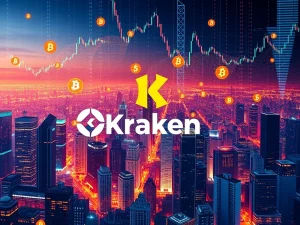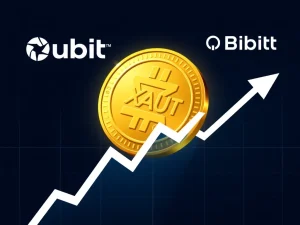An Interview with GEODNET

[ad_1]
BitcoinWorld

An Interview with GEODNET
In an exclusive interview with BitcoinWorld, we got the chance to speak with Mike Horton, Founder of GEODNET
GEODNET is revolutionizing the geospatial sector by delivering decentralized, high-precision solutions to a global audience. As the company expands its footprint in India, we sat down with founder Mike Horton to explore GEODNET’s vision, the challenges ahead, and the opportunities within this rapidly evolving market. Marking a significant milestone, GEOD tokens were recently listed on India’s largest crypto exchange, CoinDCX.
Q: What motivated GEODNET to consider India for expansion?
Mike: India is a massive country, home to one-fifth of the world’s population. Innovation and technology development cannot be ignored or underrepresented here. Currently, there is a lack of commercial RTK (Real-Time Kinematic) service availability, and we see strong partner interest, such as from Quectel Wireless Solutions, in bringing these services to the region.
Q: What are the most exciting use cases GEODNET aims to develop in India?
Mike: India’s high urban density presents a strong use case for drones, drone technology, and related services that support infrastructure needs. GEODNET can serve as a low-cost, high-precision alternative for location corrections.
Beyond that, mobility solutions are key. Autonomous driving applications, such as self-driving tractors and small field vehicles for agriculture, as well as automated industrial goods movement, are promising areas. We also aim to support rideshare services, e-scooters, and fleet vehicles that require precise location data.
Q: How does India’s growing geospatial sector align with GEODNET’s mission?
Mike: We fully support India’s government initiatives and are working on building the necessary infrastructure to align with the National Geospatial Policy guidelines. By integrating with these policies, we can better serve both the public and private sectors.
Q: What industries in India will benefit most from GEODNET’s high-precision geospatial solutions?
Mike: Our decentralized network, which is both low-cost and dense, will be especially beneficial for:
Surveying and Drone Industry – Accurate mapping and terrain modeling.
Precision Agriculture – Helping farmers optimize resources and yield.
Mobility Services – Enabling better navigation and automation for transportation.
Q: How does GEODNET plan to overcome challenges like uneven sensor deployment or data access in rural India?
Mike: We already have coverage in all Tier-1 cities in India, but our token incentives and Hex Rules encourage new base stations to be deployed outside urban centers, improving rural coverage. Additionally, our SuperHex feature allows us to focus deployment based on specific data needs, ensuring coverage where it’s most required.
Q: What partnerships or collaborations is GEODNET exploring in India?
Mike: We are engaging with:
Drone and surveying companies to support RTK needs.
Research institutes to advance geospatial studies.
WEB3 partnerships to integrate with India’s growing blockchain ecosystem.
Q: How does GEODNET plan to incentivize participation from Indian contributors?
Mike: Our tokenomics model is the same globally. However, based on specific customer needs, we will offer additional rewards through our SuperHex programs, ensuring greater incentives for participation in India.
Q: Why is the Indian market critical to GEODNET’s global vision?
Mike: Traditional Web2 companies have largely focused on Europe and the U.S., leaving India underserved. However, India has a strong desire to develop its own solutions, which aligns well with our decentralized network model, where participants are co-owners of the infrastructure.
GEODNET’s entry into India promises to revolutionize the country’s geospatial landscape, empowering industries with cutting-edge precision technology. As they build partnerships and expand their network, India could become a key hub for decentralized geospatial intelligence.
How can Indians be part of the GEODNET growth story?
Indians can actively participate in the GEODNET ecosystem by purchasing GEOD tokens on CoinDCX, India’s largest crypto exchange. We’re thrilled to partner with CoinDCX as we expand our presence in one of the most vibrant and rapidly evolving crypto markets globally.
Our growth in India has been strongly supported by both CoinDCX and Levitate Labs. These partners have played a pivotal role in deepening GEODNET’s engagement with the broader Web3 community. Together, we are laying the groundwork for a decentralized and tokenized future of connectivity and location services in India.
Stay tuned for more thought-provoking content and engaging interviews on Bitcoinworld.co.in, World of Cryptocurrency & Blockchain News.
This post An Interview with GEODNET first appeared on BitcoinWorld and is written by Keshav Aggarwal
[ad_2]
Source link









